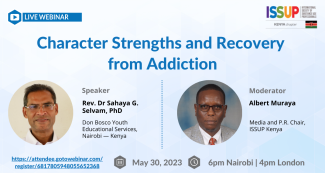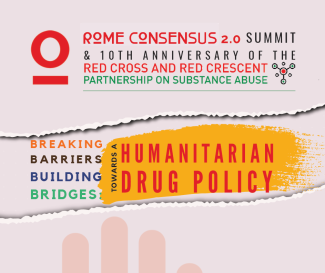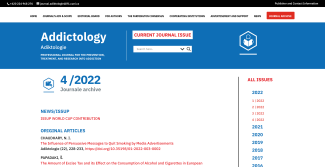The ongoing process through which individuals achieve improved health, wellness, and quality of life while striving for abstinence or reduced substance use.
Recovery Support
Character Strengths and Recovery from Addiction
ISSUP Kenya would like to invite you to their upcoming Webinar on Insights from Positive Psychology and Psychology of Religion as applied to treatment and recovery from addiction.

UNODC supported delegations from four Central Asian countries in a high-level study tour to the United Kingdom
The UNODC Regional Office for Central Asia (ROCA) together with the UNODC Prevention, Treatment and Rehabilitation Section (PTRS) organized a study tour for high-level representatives, including senior officials, policymakers and substance...

Rome Consensus 2.0 Summit
Join the upcoming Rome Consensus 2.0 Summit taking place from 2-5 May, 2023. The Summit is a unique opportunity to gather and engage in discussions with leading experts, professionals, activists, and Red Cross and Red Crescent leaders in a participatory meeting designed based on participants' national and international experiences.

2023 Virtual NIDA International Forum
The NIDA International Program invites you to the 2023 NIDA International Forum, which will take place June 8 and 9, 2023.

Stigma, Family and Community
ISSUP are pleased to present the Second Session in the Webinar Series on Stigma and Substance Use. The Second Session will be hosted by ISSUP Nigeria on the topic of 'Stigma, Family and Community'.
The 9th Anniversary of Ahsania Mission Women Drug Treatment Centre
Social stigma is the main obstacle for female substance users’ treatment. Social stigma is the reason why females who use substances are unwilling to seek treatment. The rate of substance abuse among the female is frightfully increasing...

Better Than Well- Recovery Programme to Support Students in England
The consequences of addiction to substances like drugs and alcohol, or engaging in certain behaviours like gambling, gaming, or sex, can be severe. Addiction is often a response to underlying trauma and social stressors, and continued use...
Bion’s Basic Assumption Groups in the Regimen Treatment of Addictions: Clinical Implications
This article provides reflection on the potential application of Bion’s model of basic assumption groups in patients undergoing midterm inpatient addiction treatment. The clinical implications are discussed in terms of the usability of Bion...
The Influence of Persuasive Messages to Quit Smoking by Media Advertisements
INTRODUCTION: The high rate of substance use highlights the need to intervene in the initial use prevention of smoking tobacco. The aim was to determine the efficacy of anti-smoking messages to motivate smoking cessation. METHODS: It was...

Building Resilience and Bouncing Back from setback in Recovery: The PEER Perspective
ISSUP Malaysia are pleased to present their Webinar on Building Resilience and Bouncing Back from setback in Recovery: The PEER Perspective.